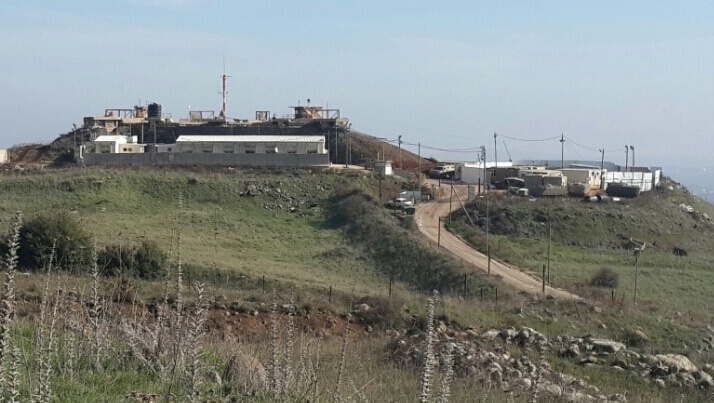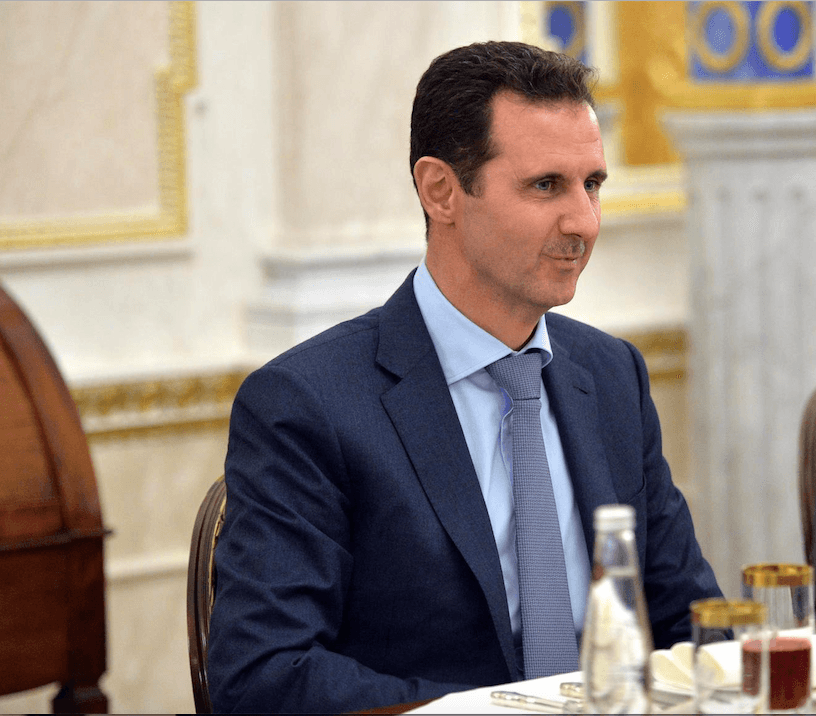Taken from the Israeli-occupied sector of the Golan Heights of the border fence and housing in Syria's Quneitra province. Credit: Xinhua/SIPA USA/PA Images
It is a striking thing about the news cycle that events of only a few days ago swiftly begin to seem like ancient history. People reminisce about events of only a few weeks back, and dredge up memories and opinions from months past. The surface-knowledge that this encourages has an obvious corollary, which is that bigger, underlying questions get passed over as though it is they which are the froth.
Events around the resignation of Priti Patel, which took place a whole week ago now, threw up a number of examples of this. But one stood out.
One of the allegations made against Patel was that – in her position as Secretary of State for International Development – she had meetings with Israelis about the possibility of the UK’s international aid budget being used to assist the Israeli government’s Syrian refugee relief efforts in the Golan Heights. Since the start of the Syrian civil war the existence of these facilities has been quietly known. Although the numbers are not huge, some hundreds of civilians who have been badly wounded in the conflict have found their way to a border which was impregnable for half a century but which for them has in recent years become semi-porous. They have been given a level of medical existence which not only does not exist anywhere else in the region, but – with Israel’s sadly acquired knowledge of these matters – does not exist anywhere else in the world. After treatment the Syrians go back into their own country, supplied with medicines or artificial limbs which it is carefully ensured do not have any markings showing that they come from the Jewish state.
For their part, the Israelis have been uncooperative with journalists wanting to see the facilities. This appears to be in order to protect the wounded Syrians, many of whom would not be able to return to Syria – or would be killed on their return – if it was clear where they had been. But a fortnight ago, just before Patel’s resignation, there was a preview screening in Parliament of a film called ‘Love your Enemies’ in which a filmmaker was given unprecedented access to some of these facilities. Photographs of the patients were carefully pixelated, but they included the story of a young man who had most of his face blown off in his native country and who was having it carefully reconstructed in Israel.
Since the UK government has in the past been generous enough to help pay the salaries of imprisoned Palestinian terrorists, it may seem surprising that it would deem the victims of such people not to be worthy beneficiaries of taxpayer largesse. But there is an additional reason for such a stance – which is that these facilities are in the Golan Heights, and in the eyes of the British government and much of the rest of the international community, these areas remain illegally occupied by Israel. The Foreign Office source (immediately identifiable as Alan Duncan) who was quoted in the press describing the idea of the UK’s International Aid budget helping such a cause as ‘inappropriate’ was certainly thinking of this fact among others.

All of which raises one of the great questions which the British Foreign Office must be invited to address. The Golan Heights are undoubtedly a beautiful area. The land has been made fertile and great swathes of vineyards among other agricultural cultivation now goes on there. But they are also a crucial tactical vantage point. Until the 1967 War, when Israel’s neighbours once again attempted to invade and destroy the state, this area’s geographical height – like a large portion of the West Bank – gave the country’s enemies a far-stretching strategic vantage-point. As such, it was a place from which to launch land-invasions and rockets that would put the whole country within striking distance of even the most basic weaponry.

 Main Edition
Main Edition US
US FR
FR







Join the discussion
Join like minded readers that support our journalism by becoming a paid subscriber
To join the discussion in the comments, become a paid subscriber.
Join like minded readers that support our journalism, read unlimited articles and enjoy other subscriber-only benefits.
Subscribe